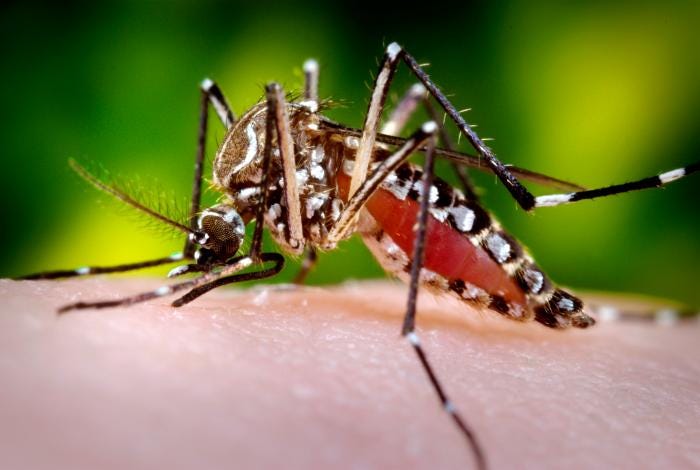Burkina Faso dengue fever epidemic update: An unprecedented surge reported
Chikungunya outbreak also reported
Dengue epidemic
Officials in Burkina Faso in West Africa are reporting an unprecedented surge in dengue fever this year.
In the past week (November 10-17), the Ministry of Health (MOH) reported 23,747 additional cases (15,918 suspected and 7,829 probable and 72 deaths).
Cumulatively, 155,426 cases (17,125 confirmed; 42,516 probable; 95,785 suspected) and 421 deaths have been reported in all 13 regions of the country, according to the latest data from the Africa CDC published November 17, although the incidence is lower than in the Central and Hauts-Bassins regions.
The epidemic was initially concentrated in the country's second-largest city, Bobo-Dioulasso, prior to spreading throughout the country.
To address the dengue epidemic, the Ministry of Health and Public Hygiene is implementing several strategies, including the free provision of rapid diagnostic tests. As of now, the Central regional health directorate has received 15,050 tests for distribution to medical centers. Dr. Daniel Yerbanga, the Regional Director of Health and Public Hygiene for the Center and Dengue Incident Manager, emphasizes that the tests are intended for those showing signs of the disease, rather than for everyone requesting them at health facilities.
Outbreak News Interviews Podcast
Among the measures are collective and individual preventive measures. Collective measures include anti-vectorial efforts such as indoor spraying for probable cases and their immediate neighbors, spraying in healthcare facilities, and spatial spraying. In Ouagadougou, more than 200 public sites are expected to be sprayed. Physical destruction of larval habitats in homes is also being carried out by volunteers, community-based health workers, and a hundred volunteers from the Burkina Faso Red Cross.
For the dengue control to be effective, populations are urged to implement individual preventive measures such as the use of repellents, wearing long clothing, and, most importantly, maintaining a clean environment to prevent mosquito proliferation.
The population is more exposed to the infection since the mosquito, the vector of the virus, is active during the day, which increases the likelihood of contact with humans and, consequently, the risk of transmission of the virus.
Dengue is a disease caused by a virus spread through mosquito bites. The disease can take up to 2 weeks to develop with illness generally lasting less than a week.
Health effects from dengue include fever, headache, nausea, vomiting, rash, muscle and joint pain, and minor bleeding.
Dengue can become severe within a few hours. Severe dengue is a medical emergency, usually requiring hospitalization.
In severe cases, health effects can include hemorrhage (uncontrolled bleeding), shock (seriously low blood pressure), organ failure, and death.
Chikungunya outbreak
The dengue epidemic had been accompanied since September by the appearance of another mosquito-borne disease, chikungunya.
The MOH has reported 473 cumulative cases (238 confirmed and 235 suspected) and no deaths.
Confirmed cases have been reported from Bobo (2), Koudougou (4), Ouagadougoa (10), Pouytenga (221) and Zorgho (1).
The US Centers for Disease Control and Prevention (CDC) has issued travel notices for Burkina Faso for both the dengue and chikungunya outbreaks.
Chikungunya disease is caused by the chikungunya virus and is spread to humans through mosquito bites. Outbreaks have occurred in countries in Africa, Americas, Asia, Europe, the Caribbean, and Indian and Pacific Oceans
Most people infected with chikungunya virus develop some symptoms. Symptoms of chikungunya usually begin 3–7 days after a bite by an infected mosquito. The most common symptoms are fever and joint pain. Other symptoms may include headache, muscle pain, joint swelling, and rash. Most people get better within a week; however, some can have severe joint pain for months to years following acute illness.
People at risk for more severe disease include newborns infected around the time of birth, older adults (65 years or older), and people with medical conditions such as high blood pressure, diabetes, or heart disease. Death from chikungunya is rare.






